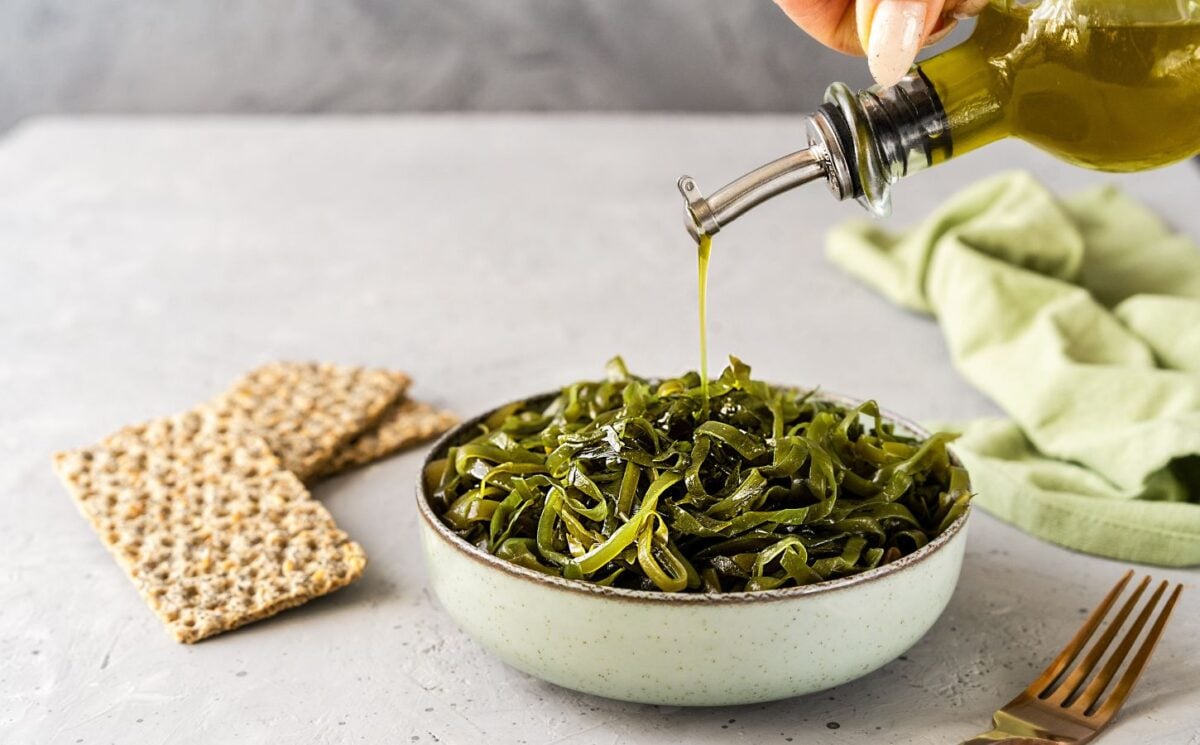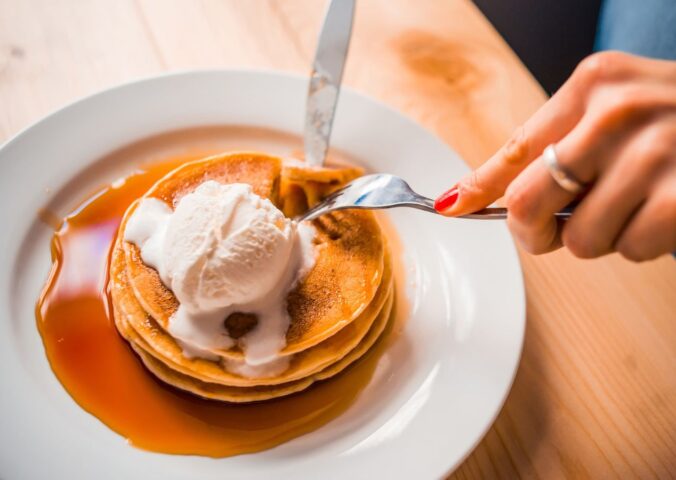Iodine is an essential trace mineral. Animal-based foods like milk, fish, and eggs most famously make up iodine intake, though plant foods also contain iodine. Here’s everything you need to know about iodine and how to get enough of this tricky mineral as part of a well-balanced plant-based diet.
The human body doesn’t produce iodine, which means people need to consume all they need through food, drink, or supplements.
Consuming the right amount of iodine helps the thyroid – a small, butterfly-shaped gland in the neck – produce hormones like thyroxine. Thyroxine helps regulate the body’s metabolism and development, control the heart, and repair bones.
“Iodine is a key mineral that we need small amounts of to keep ourselves healthy,” Rohini Bajekal, Nutritionist and Communications Lead at Plant-Based Health Professionals UK, told Plant Based News (PBN). “It is a crucial part of the thyroid hormones needed for many body processes including growth and metabolism.”
“Essentially, it helps our body’s internal “thermostat” work properly,” she added.
Iodine deficiency and iodine surplus
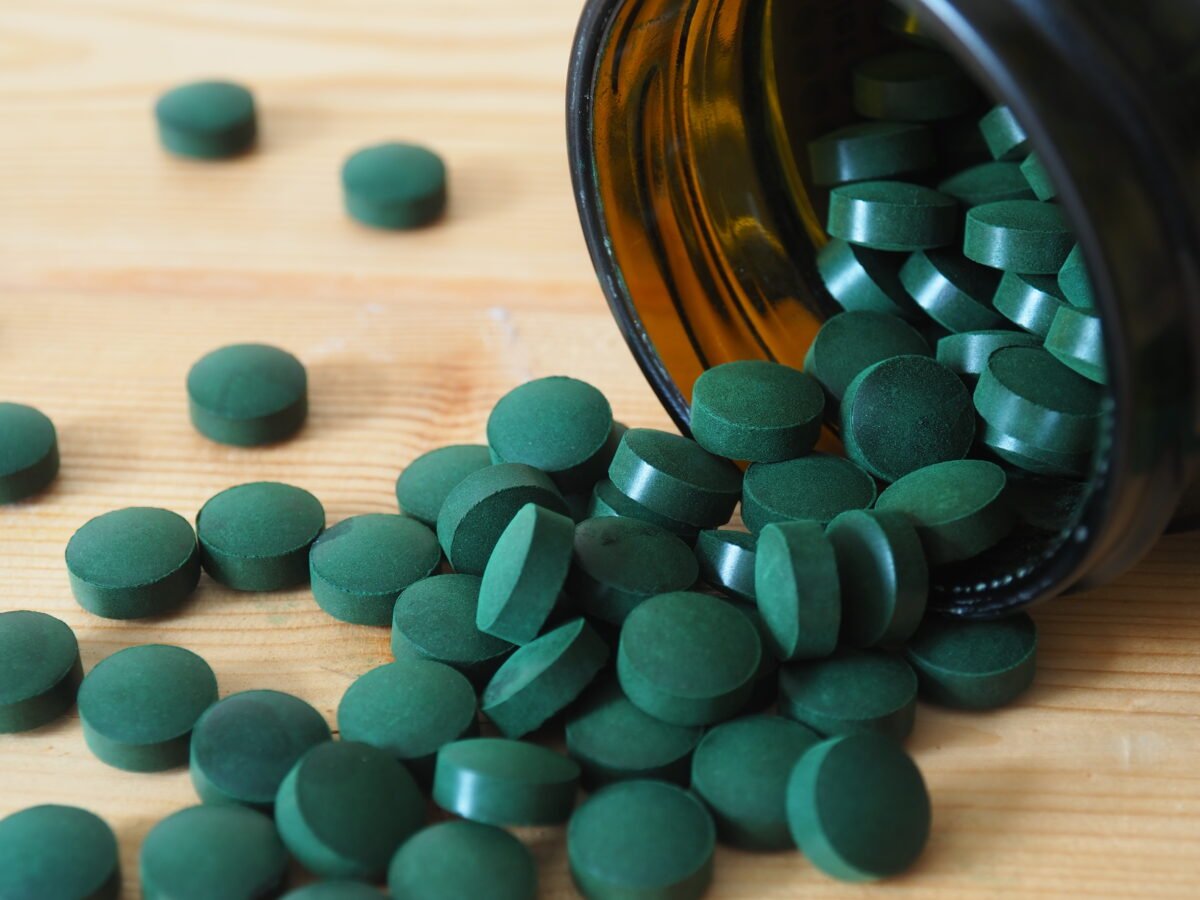
If humans don’t consume enough iodine, this can cause the thyroid gland to work harder. Iodine deficiency is the most frequent cause of goiter, which is when the thyroid becomes visibly swollen. Common symptoms of iodine deficiency include severe tiredness, muscle weakness, a weak heartbeat, weight gain, dry skin, and a puffy face.
Iodine is one of the most common nutrient deficiencies in the world, affecting up to 45 percent of the global population. However, consuming too much iodine can also cause health problems, including thyroid disorders. Excess iodine can cause goiters, hyperthyroidism, and thyroid autoimmunity, where your body’s cells attack the gland.
Notably, different people require different quantities of iodine. According to the National Institute of Health (NIH), people aged 14 and above need at least 150 micrograms (mcg) of iodine per day. Pregnant people require 220 mcg, and if breastfeeding, people require 290 mcg. However, the NHS recommends slightly less at 140 mcg per day for a typical adult.
Please always consult your GP or another healthcare professional if you have questions about nutrition, diet, and supplementation, or any health concerns.
Read more: 5 Of The Most Nutritious Vegetables You Can Eat, According To The CDC
The best plant-based sources of iodine
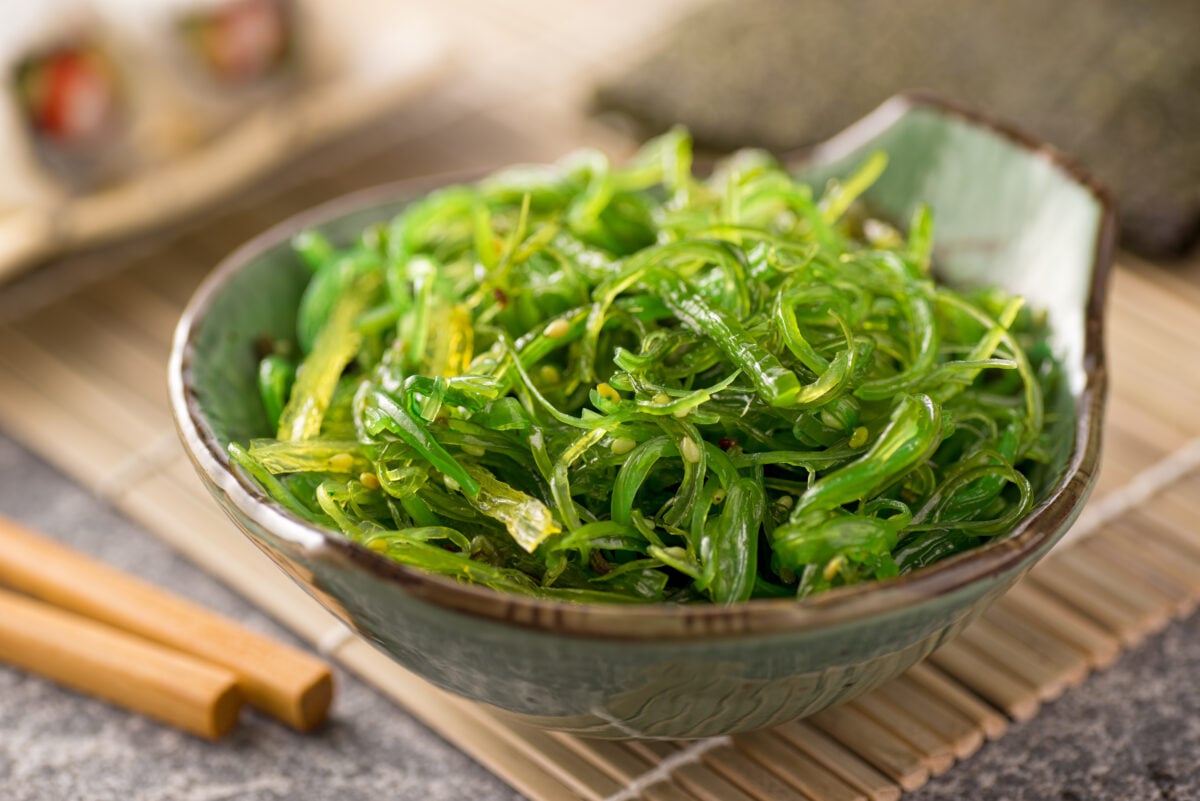
Ensuring you consume enough iodine day-to-day is fairly achievable, but where you get it will depend on your diet and which foods you can access.
Seaweed is the single best natural source of iodine for people who follow plant-based or vegan diets. Two tablespoons of flaked, dried nori contain approximately 116 mcg of iodine or 77 percent of your RDA. Sea kelp is extremely rich in iodine, and as a result, people should exercise caution when eating large quantities or consuming it as a supplement.
“Amounts in seaweed can be variable and some types may be contaminated or contain too much iodine such as kelp or hijiki,” explained Bajekal. “Seaweeds such as dulse and nori offer a more consistent amount.”
Spirulina is a blue-green algae and a nutritional powerhouse in its own right. According to the company Viesun Spirulina, it contains around 15mcg of iodine per three-gram serving of dried spirulina, 10 percent of the RDA. (This may vary from product to product.)
The nutrient variability in certain other plant-based sources of iodine also varies significantly depending on the soil and cultivation methods used. For example, cereals and grains can be rich in iodine, but it depends on how and where they are grown.
Other plant-based sources of iodine
While the amount of iodine in vegetables varies depending on growing methods, the average cup of cooked lima beans contains an estimated 16 mcg of iodine, or 10 percent of the RDA, according to Healthline.
A portion of five prunes contains around 13 mcg of iodine or nine percent of the RDA. Meanwhile, certain berries – particularly strawberries – also contain a small amount of iodine at around 13 mcg per cup, according to Restart Med.
To compensate for this variability, the NHS recommends that vegans and vegetarians eat fortified foods such as plant-based drinks and cereals. The Vegan Society also recommends consuming 500ml of an iodine-fortified milk alternative as an easy way of getting your RDA.
“Certain plant-based drinks/yogurts fortified with iodine are good options,” said Bajekal. But not all dairy alternatives are fortified with iodine, so it’s always worth checking the label.
Read more: The 11 Best Sources Of Plant-Based Calcium
Supplementary sources of plant-based iodine
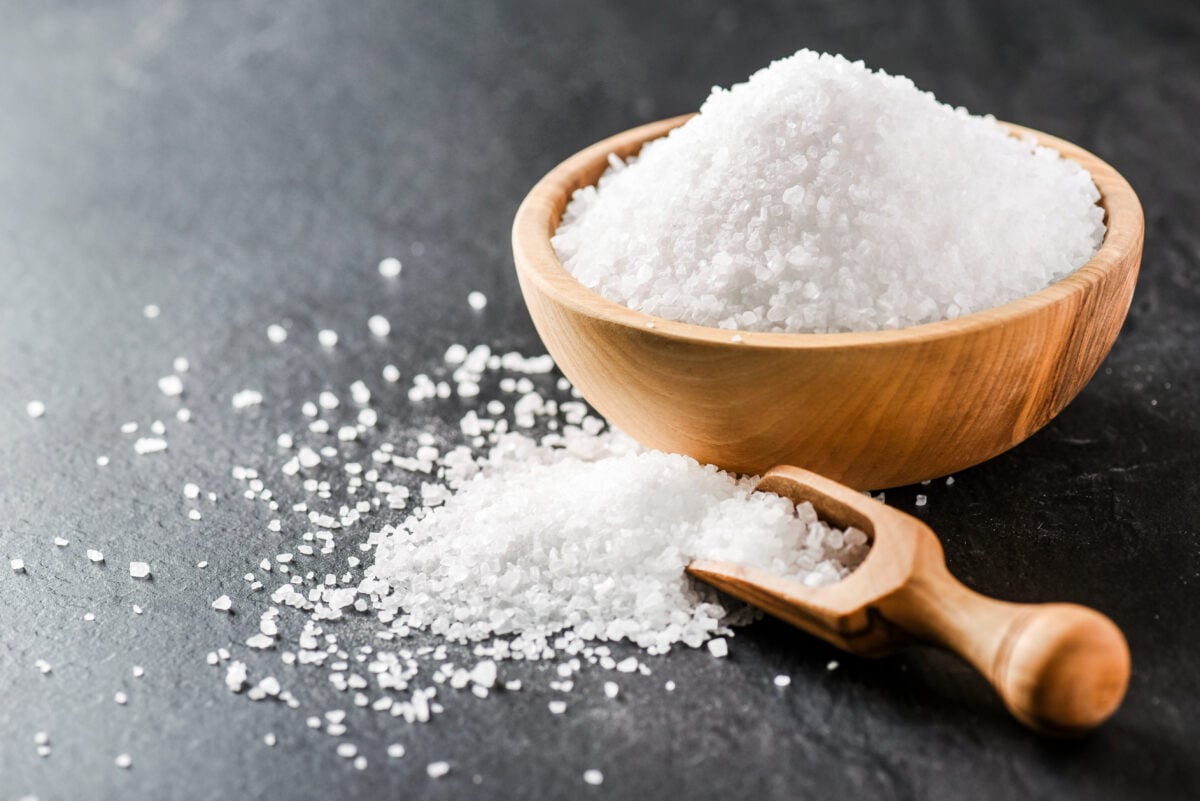
In the US, iodized salt is another common plant-based source of iodine. However, excessive sodium consumption comes with its own risks, and the Centers for Disease Control and Prevention (CDC) has said that 90 percent of Americans eat too much salt. In the UK, most salt is not iodized, and most pre-prepared foods do not contain iodized salt either.
“Unlike many other parts of the world, we do not iodize our salt in the UK (a process called iodization). This is one reason why people might not get enough,” explained Bajekal.
Because iodine content can be so variable in vegetables, fruit, and fortified plant-based foods, the easiest way to ensure a regular intake with optimal absorption is through daily supplementation. Bajekal echoes this sentiment and told PBN that she takes a daily supplement to make sure she meets the daily iodine recommendations.
Iodine is widely available as a dietary supplement in the form of sodium iodide or potassium iodide. It comes as pills, tablets, and powders. Many everyday multivitamins contain iodine, and supplements that contain pure kelp are also available.
“When it comes to iodine, a daily supplement containing up to 150 micrograms in the form of potassium iodide or potassium iodate is advisable for plant-based eaters,” said Bajekal. “This is especially important prior to conception, pregnancy, and breastfeeding as iodine plays a critical role in early brain development.”
You should consult a healthcare professional before taking supplements, as these may not be suitable for everyone.
How to maintain iodine consumption on a plant-based diet
Consuming an optimal amount of iodine is an essential part of any healthy diet. As noted above, there are several plant-based sources of iodine, containing varying quantities of the essential mineral. Combining iodine-rich foods like fortified milks and cereals, seaweeds, fruit, and vegetables all together can help optimize your intake.
However, it’s worth noting that certain staple foods can hinder absorption, including soy, cassava, and cruciferous vegetables. These otherwise nutritious plants contain goitrogens, which can disrupt the thyroid’s production of hormones and interfere with iodine absorption.
Because of this, many health experts – including Bajekal – recommend regular iodine supplementation as the most effective and consistent way to ensure you meet your RDA.
Bajekal has previously recommended small doses of iodine over large ones due to the risks associated with consuming too much. The recommended dose of 150 mcg is a very small quantity, so be mindful of this when consuming supplements and iodine-rich foods like kelp.
Writing for Healthline, registered dietician Jared Meacham described Thorne Iodine & Tyrosine as the best rigorously tested iodine supplement, Pure Encapsulations Iodine as the best all-round, and Future Kind’s Liquid Drops. All three of these products are suitable for vegans and are widely available both online and in certain health food stores.
Read more: ‘My 7 Biggest Nutrition Mistakes On A Plant-Based Diet’
